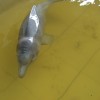Archive for December, 2011
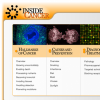
Evaluating our DNALC Inside Cancer website
Dec 22nd
Every multimedia developer is from time‐to‐time faced with the difficult question from a board member, critic or funding body: “This program is all very nice, but can you prove it actually helps students to learn?”
This year, we found the answer.
As part of my job as a producer at the DNA Learning Center, I evaluate our suite of resources, including websites, teacher training workshops and apps. We recently completed the evaluation of our cancer biology website, Inside Cancer, which included conducting experiments in 2010–11 to see if the site improves student learning in genetics and cancer biology.
There is increasing pressure on More >
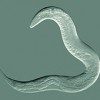
Aging Eggs
Dec 20th
C. elegans Roundworm
The aging process is, and always will be fascinating to us. It’s role in an organism’s ability to reproduce is currently being studied in worms at Princeton University. The microscopic roundworm C. elegans lives for about 21 days. For the first nine of these days, hundreds of eggs are fertilized producing an abundance of offspring! After day nine, the many remaining eggs won’t be used, as their quality is poor and they cannot produce viable embryos. A process similar to this takes place in humans. Women experience a sharp decline in fertility in their late 30’s. In worms and in humans More >
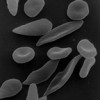
Malaria Mystery: SOLVED
Dec 15th
Normal and Sickled Red Blood Cells
While scientists have long known that carriers for Sickle Cell Trait are more resistant to Malaria infection, the mechanism by which protection is conferred has not been well understood—until now. Scientists at Heidelberg University used an electron microscope to observe what happens when the parasite that causes Malaria in humans, Plasmodium falciparum, infects red blood cells containing both healthy and mutant hemoglobin.
Scientists noticed that in red blood cells with healthy hemoglobin, the parasite hijacks the actin cytoskeleton to transport its own “adhesin” protein to the cell membrane. The adhesin, also called Plasmodium falciparum Erythrocyte Membrane Protein 1 More >
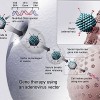
Merry Christmas to Hemophilia Patients
Dec 15th
Gene therapy is a technique that offers the potential to replace defective copies of genes in any genetic disease with an intact version. While the idea of this treatment sounds alluring, the actual practice of it is a whole other story. There are a few drawbacks to this technique that must be considered, including the potential risk of an immune response because the gene is inserted with the use of a virus, which the immune system will see as foreign. Also, most patients so far have needed multiple treatments over the course of their lifetime, estimating to cost much more More >

Cancer Overtreatment. When the solution is worse than the problem.
Dec 13th
We often focus on cancers that are lethal, and especially those that can’t be treated, and for obvious reasons. This week, the National Institutes of Health addressed a different concern- that sometimes a cancer that isn’t life threatening is best left alone. In this case, it is prostate cancer, which affects about 30 to 40 percent of men over 50. About 240,000 men are diagnosed with prostate cancer a year, and over 30,000 die of the disease – so it is far from being rare or harmless for many. However, over half of prostate cancers are localized and many will More >

